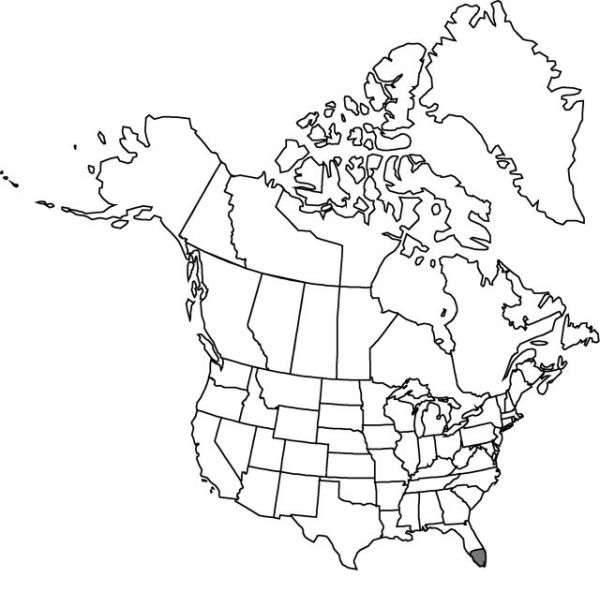Epidendrum rigidum
Enum. Syst. Pl., 29. 1760.
Plants creeping, to 40 cm. Roots from nodes along creeping rhizome, 1–2 mm diam. Stems 2 cm apart, ascending, compressed, to 20 cm. Leaves 2–7, near apex of stem; petiole 15–26 mm, compressed; blade elliptic, 3–8 × 0.8–1.5 cm, leathery, apex obtuse. Inflorescences distichous-elongate, usually erect, rarely arching, sinuous, 5–15 cm; peduncle 1–3 cm. Flowers 3–10, with underside of lip always facing rachis, not resupinate, somewhat successive, green; sepals ovate, 5 × 2.5 mm, apex acute to obtuse; petals linear, 5 × 1 mm; lip ovate to nearly quadrangular, 3 × 3 mm, apex obtuse to rounded, 2-callose; column 3 mm; clinandrium hood denticulate; anther ovoid, with low keel in front; ovary 10–11 mm, covered by prominent, conduplicate bracts often somewhat longer than ovary. Capsules ovoid; pedicel 1–2 mm; body 10–12 × 7–9 mm; beak 3–4 mm.
Phenology: Flowering Sep–Dec; fruiting spring.
Habitat: Growing on trees in swamps [common in lowlands]
Elevation: 0–30 m
Distribution

Fla., West Indies, Bermuda, South America.
Discussion
Epidendrum rigidum is the most widespread and common epidendrum in the tropical regions of the Western Hemisphere. In Mexico and Central America it is replaced by a closely related species, E. cardiophorum Schlechter.
Selected References
None.